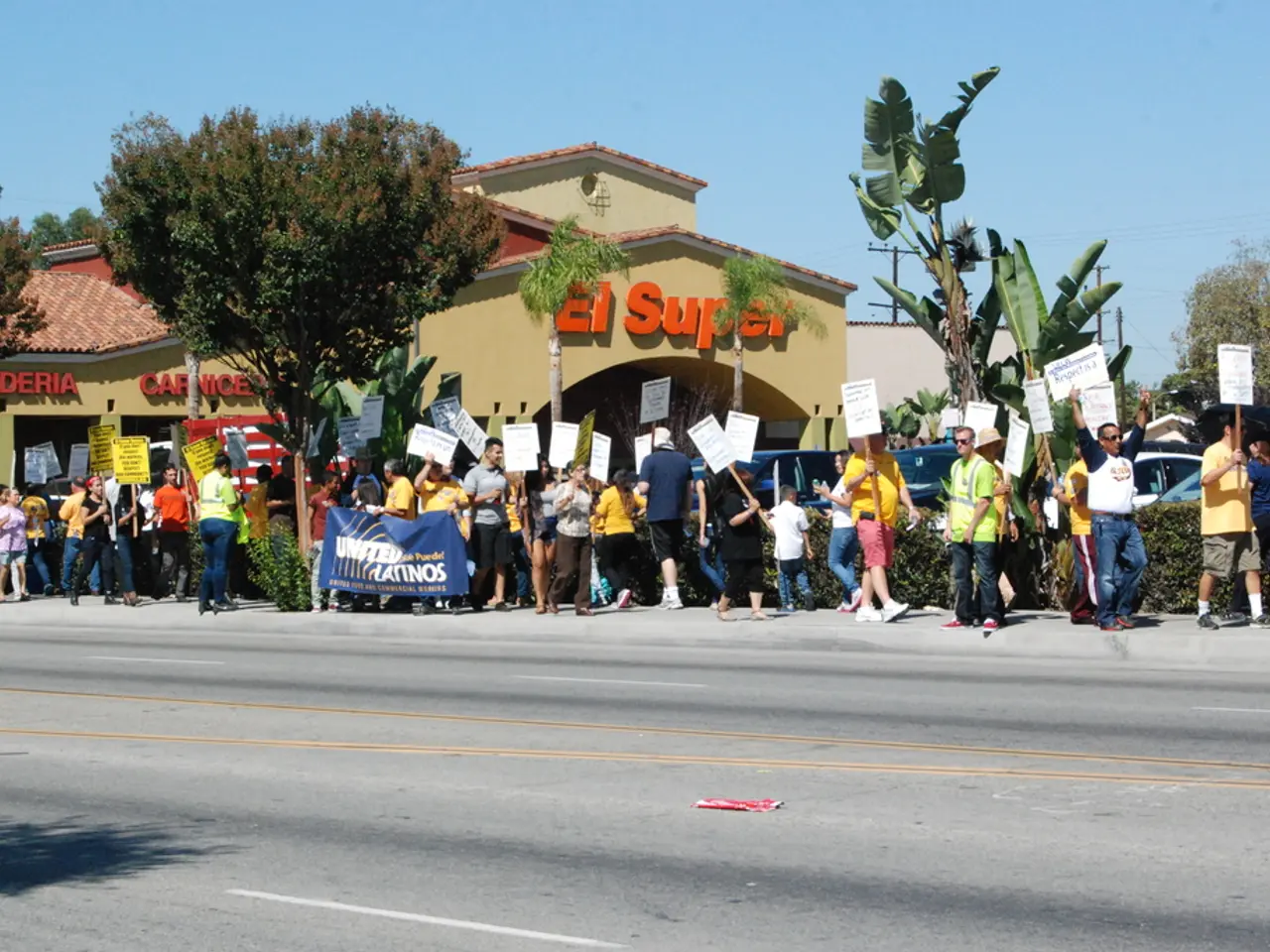"Biting My Tongue" Trump Frustrated with Fed Chair Powell, Threatens Action
Trump sinks his teeth into Federal Reserve Chairman Powell in verbal confrontation.
With growing impatience, US President Donald Trump has been vocal about his disapproval of the Federal Reserve's monetary policies, particularly the interest rates. Despite his continued criticisms, Fed Chair Jerome Powell remains unwavering.
Trump, known for his colorful language, described the situation on his personal platform, Truth Social, saying "I've been nice, I've been neutral, and I've been nasty - and nice and neutral haven't worked." He labelled Powell as a "fool", "idiot", and a "stupid guy."
Economically, Trump advocated for a drastic reduction in interest rates to a range of 1 to 2 percent, arguing it could save the US a billion dollars a year due to the high servicing costs of the federal government's debt. Currently, the interest rate ranges from 4.25 to 4.5 percent, and the Fed maintained its current rate in its recent decision.
To Fire or Not To Fire?
Despite Trump's relentless verbal attacks on Powell, who he appointed during his first term, the possibility of removing him is a complex legal issue. Trump hinted that he might reconsider firing Powell, who has less than a year left at the helm of the Fed. However, many experts believe it would be inadvisable to remove Powell without substantial justification.
If Trump were to attempt a firing, it could have far-reaching consequences, including legal challenges, market instability, and potentially setting a precedent for greater executive control over the Fed.
The Independence of the Fed Under Scrutiny
The legality of Trump removing Powell is questionable due to the unique legal protections surrounding the independence of the Fed. According to federal law and prior court precedents, members of the Federal Reserve Board of Governors, including the Chair, can only be removed "for cause." This means Trump cannot fire Powell at will but must have substantial evidence of misconduct or neglect of duty.
Moreover, a recent Supreme Court ruling clarified that the Fed, as a "uniquely structured, quasi-private entity," falls outside the president's broader removal authority. This grants the Fed stronger protections against executive interference. Powell himself has publicly stated that he would not resign if asked by the President.
Potential Consequences of Interference
Should Trump attempt to interfere with the Fed's leadership, financial markets could be significantly impacted. Unsettling these markets, eroding confidence in the Fed's independence, and creating political turbulence may be the potential outcomes.
Moreover, setting a precedent for greater executive control over the Fed could undermine the traditional separation intended to shield monetary policy from political pressures, leading to potential long-term economic consequences.
The Fed aims to maintain stable prices and promote full employment—objectives they remain steadfastly focused on, despite Trump's criticisms.
Sources: ntv.de, ino/dpa
- Fed
- Monetary policy
- Donald Trump
- Jerome Powell
- Interest rate
- In the realm of policy-and-legislation, the independence of the Fed is questionably under threat due to the unique legal protections surrounding it, as outlined in federal law and prior court precedents, which state that members, including the Chair, can only be removed for cause.
- General-news outlets have been reporting on the potential consequences of executive interference in the Fed's leadership, with financial markets, confidence, and political stability at risk, should Trump attempt such a move.
- In the context of war-and-conflicts, Trump's bitter struggle with Fed Chair Powell over monetary policies, particularly interest rates, could symbolize a power struggle not unlike battlefield encounters, where politics and economics intertwine in a complex web between the parties involved.







